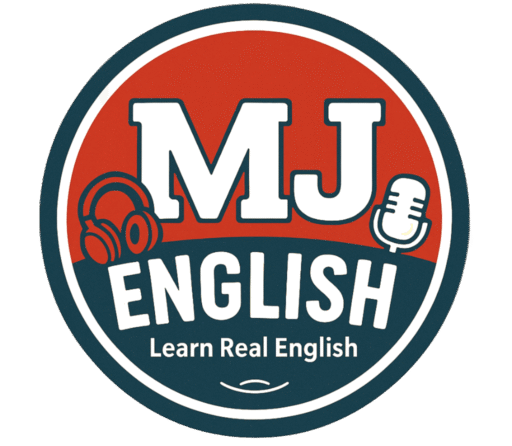你是不是也有過這種情況?
時鐘指向五點半,準備關筆電、揹包出門,
結果突然發現——報表還沒交、主管又丟新任務!😩
今天教你用英文自然表達「加班」、「做不完」、「被時間追著跑」等情境句型,
輕鬆應對職場中最真實的壓力時刻。
🎧Apple Podcast | Spotify
💬 Dialogue|情境會話:五點半想走,卻發現工作做不完
星期五下午,Amy 原本計劃準時下班去跟朋友吃飯,
卻發現主管交代的資料還沒整理完。她和同事 Tom 在辦公室裡相互打氣。
English Dialogue
Amy: Ugh, it’s already 5:30 and I’m still not done.
Tom: Same here. I thought I could head out early today.
Amy: I wish! I still have two reports to finish.
Tom: Oh no, that sounds rough.
Amy: Yeah, looks like I’ll have to work overtime again.
Tom: Didn’t you stay late last night too?
Amy: Yup, and my coffee budget is out of control.
Tom: Haha, welcome to corporate life.
Amy: Seriously, my brain’s already fried.
Tom: Need a hand? I can help you proofread.
Amy: That would be amazing! You’re a real lifesaver.
Tom: No problem. Let’s finish this and grab dinner after.
Amy: Deal! Dinner’s on me if we survive this night.
中文翻譯
Amy: 唉,都五點半了,我還沒做完。
Tom: 我也是,本來想說今天能準時下班。
Amy: 想太美,我還有兩份報告沒弄完。
Tom: 天啊,聽起來挺慘的。
Amy: 對啊,看來我今晚得加班了。
Tom: 妳昨晚不是也留到很晚嗎?
Amy: 對啊,我的咖啡預算都爆表了。
Tom: 哈哈,這就是上班族人生。
Amy: 說真的,我腦子都當機了。
Tom: 需要幫忙嗎?我可以幫妳校稿一下。
Amy: 太感動了!你真是我的救星。
Tom: 小事啦,趕完一起去吃晚餐吧。
Amy: 一言為定!如果我們撐過今晚,晚餐我請!
📚 Vocabulary Boost|重點單字片語
| 單字 / 片語 | 詞性 | 中文意思 | 英文例句 | 中文翻譯 |
|---|---|---|---|---|
| head out | v. phr. | 出發、離開 | I planned to head out at 5:30, but my work isn’t done yet. | 我原本五點半要走,但工作還沒做完。 |
| report | n. | 報告 | I have two reports to finish before I leave. | 我要在離開前完成兩份報告。 |
| work overtime | v. phr. | 加班 | I’ll have to work overtime tonight. | 我今晚得加班。 |
| stay late | v. phr. | 留到很晚 | She always stays late to finish her work. | 她總是留到很晚才下班。 |
| fried | adj. | (口語)累壞了、腦袋當機 | My brain is completely fried. | 我腦袋整個當掉。 |
| proofread | v. | 校對、檢查 | Can you proofread this report for me? | 你可以幫我校對這份報告嗎? |
| lifesaver | n. | 救星 | You’re a lifesaver for helping me out. | 你真是我的救星! |
| corporate life | n. | 上班族生活 | Welcome to corporate life, where deadlines never end. | 歡迎來到上班族人生,截止日永無止境。 |
| budget | n. | 預算 | My coffee budget is out of control this month. | 這個月我的咖啡預算爆掉了。 |
| deal | n. | 一言為定、成交 | It’s a deal — dinner’s on me. | 說定了,晚餐我請。 |
🔍 Sentence Patterns|句型整理
| 句型結構 | 中文意思 | 英文例句 | 中文翻譯 |
|---|---|---|---|
| It’s already + 時間, and I’m still not done. | 都⋯點了,我還沒做完 | It’s already 5:30, and I’m still not done. | 都五點半了,我還沒做完。 |
| I thought I could + V. | 我以為我可以⋯ | I thought I could leave early. | 我以為可以早點走。 |
| Looks like I’ll have to + V. | 看起來我得⋯ | Looks like I’ll have to work overtime. | 看來我得加班。 |
| Need a hand? | 要幫忙嗎? | Need a hand with your report? | 要幫忙弄報告嗎? |
| You’re a lifesaver! | 你是救星! | You’re a lifesaver, thank you! | 你幫大忙了,謝謝! |
| Dinner’s on me. | 晚餐我請客。 | Let’s grab dinner — dinner’s on me! | 去吃晚餐吧,這餐我請! |
📖 Transcript 逐字稿
M: Welcome back to MJ English.
M:歡迎回到 MJ English。
J: Hey everyone.
J:大家好呀~
M: So, you know that feeling? It’s like 5:29 p.m. on a Friday. You’re so ready to leave.
M:你知道那種感覺嗎?星期五下午五點二十九分,你整個人已經準備要閃人了。
J: Foot halfway out the door.
J:腳都已經跨出門口了啦。
M: And then—bam! Another email.
M:結果——砰的一聲,又來一封信!
J: Or you spot that report that’s definitely not finished.
J:或者你突然發現那份報告…根本還沒做完。
M: That sinking feeling. It happens all the time, and knowing how to talk about it naturally… well, that’s key for office English.
M:那種心瞬間沉下去的感覺。這種事常常發生,而你要知道怎麼用自然的英文來描述,這在職場英文裡超重要。
J: You hear this kind of chat in shows like “Suits” or even “The Office” all the time. It’s real workplace talk.
J:沒錯,像《金裝律師》或《辦公室風雲》這些影集裡常常出現,這些都是真實的職場對話。
M: So, what we want to do today is look at a really quick dialogue that nails this “working late” conversation. Practical stuff you can actually use.
M:所以今天我們要來看一段超短的對話,精準示範「被迫加班」的情境。都是你可以直接用在生活中的句子喔!
J: Okay, so picture this: Amy, she really wants to go home. And her colleague, Tom. It’s Friday, end of the day, and the work just isn’t done. Let’s just jump right into how they handle it.
J:好,想像這個場景:Amy 超想回家,她的同事 Tom 在一旁。禮拜五快下班了,但工作還沒做完。我們直接來聽他們怎麼面對這狀況吧!
Amy 原本計劃準時下班去跟朋友吃飯,
卻發現主管交代的資料還沒整理完。她和同事 Tom 在辦公室裡相互打氣。
English Dialogue
Amy: It’s already 5:30 and I’m still not done.
Tom: Same here. I thought I could head out early today.
Amy: I wish! I still have two reports to finish.
Tom: Oh no, that sounds rough.
Amy: Yeah, looks like I’ll have to work overtime again.
Tom: Didn’t you stay late last night too?
Amy: And my coffee budget is out of control.
Tom: Welcome to corporate life.
Amy: Seriously, my brain’s already fried.
Tom: Need a hand? I can help you proofread.
Amy: That would be amazing! You’re a real lifesaver.
Tom: No problem. Let’s finish this and grab dinner after.
Amy: Deal! Dinner’s on me if we survive this night.
中文翻譯
Amy: 都五點半了,我還沒做完。
Tom: 我也是,本來想說今天能準時下班。
Amy: 想太美,我還有兩份報告沒弄完。
Tom: 天啊,聽起來挺慘的。
Amy: 對啊,看來我今晚得加班了。
Tom: 妳昨晚不是也留到很晚嗎?
Amy: 對啊,我的咖啡預算都爆表了。
Tom: 這就是上班族人生。
Amy: 說真的,我腦子都當機了。
Tom: 需要幫忙嗎?我可以幫妳校稿一下。
Amy: 太感動了!你真是我的救星。
Tom: 小事啦,趕完一起去吃晚餐吧。
Amy: 一言為定!如果我們撐過今晚,晚餐我請!
J: Okay, see how fast that was? Like, boom boom boom. Exhaustion, offer, agreement.
J:欸你有發現整段節奏超快嗎?一連串:崩潰、有人伸出援手、然後達成共識。
M: Really quick and natural. None of that super formal stuff. Let’s maybe pull out some keywords they used.
M:整段又快又自然,完全沒有那種很制式的語氣。我們來看看有哪些重點單字。
J: First off, Tom says he thought he could “head out” early.
J:首先 Tom 說他本來以為可以早點「head out」。
M: Right, “head out.” Super common, really casual way to just say “leave” or “depart.” You know, “Time to head out.” Simple.
M:沒錯,”head out” 是超常見的口語說法,意思就是「離開」、「走人」。像「該走啦!」英文就會說「Time to head out」,超簡單。
J: Then Amy’s reaction: “My brain’s already fried.” That word, “fried”… it’s so descriptive.
J:然後 Amy 回:「我腦袋已經炸了!」那個 “fried”(炸掉的)形容得超傳神。
M: It really is. It’s not just tired, it’s like total mental exhaustion. Your brain feels overloaded, maybe even a bit useless at that point.
M:真的,那已經不只是「累」,是整個腦袋當機了,超負荷,甚至有點廢掉的感覺。
J: Like you can’t process anything else.
J:就是連基本思考都無法了那種感覺。
M: And it connects perfectly to Tom’s little joke…
M:然後就接到 Tom 的小玩笑…
J: “Welcome to corporate life.”
J:「歡迎來到上班族人生~」
M: That phrase just sums up the whole grind, doesn’t it? The deadlines, the long hours…
M:這句話完美總結職場的苦啊!死線、加班,日復一日。
J: It’s kind of a shared, slightly cynical understanding of office work.
J:這是一種大家都有的職場共鳴,帶點苦笑的感覺。
M: Okay, and then the big turning point. Tom offers help, and Amy calls him a “lifesaver.”
M:好,接著進入轉折點。Tom 提出幫忙,Amy 說他是她的「lifesaver(救星)」。
J: “lifesaver.” Such a great informal word. It means someone really helped you out of a difficult spot. Huge gratitude packed into one word.
J:「Lifesaver」是個超棒的非正式用語,意思是「在困境中幫了我大忙的人」,整個感激濃縮成一個字。
M: Definitely better than saying, “Thank you for your assistance.”
M:比起說「感謝您的協助」自然太多了!
J: Way better. Much more impactful.
J:好太多了,聽起來有溫度又有力道。
M: So that’s some vocab. What about the sentence patterns they used? Those are super useful too.
M:那單字講完了,我們來看看他們的句型吧,這些其實也超實用。
J: Let’s look at how they actually structured their complaints and offers.
J:來看看他們怎麼組句子來抱怨或提出幫忙。
M: Well Amy starts with that classic complaint: “It’s already + [time] and I’m still not done.”
M:像是 Amy 的抱怨句型就是:「已經 + “時間”了,我還沒做完。」
J: So, “It’s already 5:30 and I’m still not done.” , it really highlights the contrast. Like, “this late and still working.”
J:例如「已經五點半了我還在加班」,強調那個反差感,「都這麼晚了還沒做完」。
M: And when she accepts her fate, she uses, “Looks like I’ll have + [verb].”
M:然後她認命的時候會說:「Looks like I’ll have to + 動詞」,就是「看起來我得…」
J: “Looks like I’ll have to work overtime again.” It sounds reluctant, you know, like she doesn’t want to, but she has to.
J:像「看來我又得加班了」,就是那種不情願但也沒辦法的語氣。
M: It signals that necessity without sounding like a formal declaration. Then Tom’s offer. So simple.
M:這樣講就很口語又自然。接著是 Tom 提出的幫忙,超簡潔。
J: “Need a hand?”
J:「需要幫忙嗎?」
M: Short, direct, friendly. Perfect way to offer help without making a big deal out of it.
M:簡短、直接又友善,是提出幫忙時最自然不做作的說法。
J: And the way they sealed the deal at the end.
J:最後他們達成協議的方式也很口語。
M: Two key bits there. First, “Deal.”
M:有兩個重點。第一是「Deal(成交)!」
J: Or you might hear, “It’s a deal.” That confirms the agreement. Super quick.
J:或者說「It’s a deal.(就這麼說定了)」也是確認彼此講好的好句,簡單明快。
M: And then Amy’s offer: “Dinner’s on me.”
M:然後 Amy 還說:「Dinner’s on me(我請吃飯)」。
J: “on me.” That’s the standard, casual way to say you’re paying for something, usually food or drinks. Much smoother than, “I will pay for dinner.”
J:”on me” 是最常見也最自然的「我請客」說法,通常用在吃飯或請飲料,聽起來比「I will pay for dinner」自然多了。
J: Okay, so we covered quite a bit there. Now you’ve got the language to talk about being stuck late, feeling exhausted, asking for help…
J:好啦,我們今天學了超多!像是怎麼描述被困在公司、累炸、還有怎麼開口請人幫忙…
M: …and maybe even scoring a free dinner out of it.
M:…甚至還有機會賺到一頓晚餐呢
J: The most important part. It’s all about sounding natural in those everyday office situations.
J:對啊~這才是重點啦~就是要讓你在職場日常聽起來自然又道地。
J: Want the full transcript, key vocabulary, and useful sentence patterns? Just click the link below.
J:如果你想下載逐字稿、重點單字跟句型整理,記得點下面的連結唷~
M: Yeah, definitely check that out. And try using one of these next time you’re feeling that end-of-day crunch. Even when your brain feels totally fried. It makes a difference.
M:對,點下去看看吧~下次你下班前腦袋炸掉時,不妨試試用這些句子,你會發現真的有差喔!
J: Okay, that’s all for this session of MJ English. Hope your next workday ends on time.
J:那今天的 MJ English 就到這邊,希望你下次能準時下班啦!
M: Take care.
M:下次見,保重喔~
✅ Quick Check 小測驗
📌 延伸閱讀建議
- 【職場英文】Running Late for Work:上班快遲到怎麼說才自然?
- 【上班族英文】Per My Last Email:Email英文禮貌用語與地雷句
- 【生活英文】Work-Life Balance:學會用英文談「加班」與「休息」



